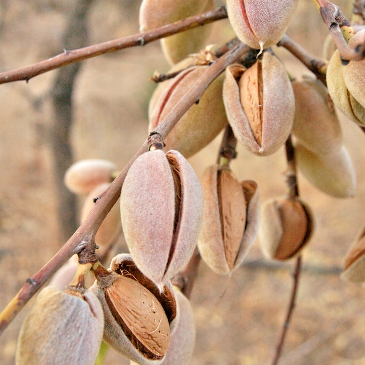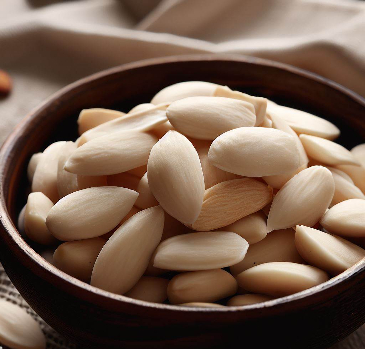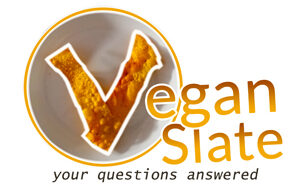Lectins have received some very bad press in recent years. Largely due to the rise in popularity of fad diets like ‘carnivore’ and the pushers of these peculiar ways of eating. Almond milk has come under particular scrutiny with many people asking: “Does almond milk have lectins?” … well, let’s set the record straight here today.
Does Almond Milk Have Lectins?
Commercial almond milk contains almost no lectins. See the rationale below. Homemade almond milk may contain slightly more lectin but it’s not going to be a significant amount and highly unlikely to cause you any discomfort, unless you’re hyper-sensitive to lectin.
Watch: Mic The Vegan on ‘The Plant Paradox’
( Dr Gundry emphatically declares lectin is the enemy – but is he right? )
Related: Why Does Almond Milk Hurt My Stomach?
What Are Lectins & How Do They Affect Us?
Lectins are phytonutrients which serve to protect plants against insect attack, mould and other biological threats. Hundreds of different lectins have been identified.
The classification of lectins covers a wide variety of carbohydrate-binding proteins. Amazingly, lectins are able to selectively recognise and bind to specific carbohydrate structures [1].
They are referred to as anti-nutrients because this binding behaviour, it is believed, can inhibit the absorption of the nutrients we need to stay healthy.
Foods with a high lectin content need to be made safe through processing before human consumption.
There was a famous lectin poisoning case in Japan where a TV show recommended using toasted, ground white kidney beans as part of a new diet regime.
Over 1000 people suffered debilitating intestinal complaints after following the advice and more than 100 people were hospitalised.
Just goes to show, lectins are to be treated with respect!
Do Almonds Contain Lectins?
Yes, almonds do contain lectins. They occur mostly in the skin of the almond, which makes sense if you think about it, from a defensive point of view.
 All nuts contain this anti-nutrient, usually in the skins and almonds are known to have one of the highest concentrations of lectin, compared to other nuts.
All nuts contain this anti-nutrient, usually in the skins and almonds are known to have one of the highest concentrations of lectin, compared to other nuts.
But before you freak out and decide it’s a lectin-free diet for you, hold up …
There’s a long list of plant foods which contain lectins [2] and many of these foods exhibit numerous other health benefits which you may not want to exclude from your diet.
Just to look at almonds in particular … high in antioxidants, fibre, vitamin E, magnesium, phosphorus, potassium and protein. Almonds are also high in monounsaturated fat which helps increase the beneficial cholesterol in the blood.
Furthermore, almonds are good for your brain function. They contain riboflavin and L-carnitine which both have a positive effect on the growth of brain cells. Just 2 or 3 almonds a day is enough to provide those benefits.
Also some studies have concluded that low doses of lectins may be beneficial to gut health and could even limit tumour growth.
As always, it’s a complex picture with no ‘one size fits all’ conclusion.
How Much Lectin Is In Almond Milk?
Most commercial almond milks will have a very low concentration of lectin in there, for a few reasons …

The straining process removes the skins from the product and so, most of the lectin.
Ultra heat treated (UHT) products will have destroyed a large percentage of any lectin that remains after straining.
The percentage of almonds in most shop bought milks is less than 10% so any lectin that survives the process is diluted greatly.
As you can see, for most commercial almond milks, lectin content is simply not an issue and you don’t need to worry about it unless you are highly sensitive to lectins.
Homemade almond milks, on the other hand, may not be quite so straightforward.
For a start there’s usually a much greater percentage of almonds present in the homemade version. When we made our own it was around 35 – 40% almonds … delicious!
Although the straining process is still going to remove the majority of the lectin content, the fact it is a raw, unpasteurised, non UHT product means you’re likely to have a little more of this anti-nutrient in a homemade almond milk.
Even so, it’s going to be minimal and there are ways you can further reduce the lectin concentration …
Reducing Anti-Nutrients in Almonds
Since most of the lectin content in almonds is in the skins, the logical solution to reducing concentrations is to remove those skins.
 Doesn’t take a vegan nutritionist to work that one out.
Doesn’t take a vegan nutritionist to work that one out.
3 ways to remove almond skins easily:
Blanching: Pop your almonds in a pan and cover with water. Bring to the boil over high heat, then remove from heat and let stand for a minute or two. Drain and rinse the almonds well with cold water, then rub them between your fingers to remove the skins, which should loosen easily.
Roasting: Preheat your oven to 175 degrees C (350 degrees F). Spread out the almonds on a baking sheet and roast for 10-12 minutes, or until lightly browned. Allow them to cool slightly, then rub the almonds between your fingers to loosen and remove the skins.
Soaking: Place the almonds in a large bowl and add water so that the top of the water level is an inch above the almonds. Soak for a minimum of 8 hours, or ideally overnight. Drain and rinse the almonds well with cold water. Finally, rub them between your fingers to loosen the skins.
For the final step in all of these methods you can try using a tea towel to rub the almonds and remove the skins. Just place the nuts in the middle of the tea towel, close up the towel around the almonds and rub them together.
You may find it’s a quicker way to remove the skins like this.
Whichever of the three methods you decide upon, make sure the almonds are rinsed thoroughly to remove any last traces of the skins. You can then enjoy your lectin-free, peeled almonds on their own, or use them in your favourite recipes.
Obviously, making homemade almond milk with de-skinned almonds is going to result in a product almost entirely free of lectin.
What Is The Plant Paradox?
If you’ve been looking into lectins in any detail you’ve probably come across Dr. Gundry’s book, “The Plant Paradox”. It’s a book which is not without controversy.

Dr. Stephen Gundry is a physician specialising in the cardiovascular field. His credentials are impressive and he speaks with authority.
The Plant Paradox is a New York Times best seller and makes the bold claim that foods high in lectins are the real reason we’re all sick!
Many people have taken Gundry’s word as gospel but the cracks begin to show as soon as you take a peek below the facade.
Legumes, for example, are one of the foods with a high lectin content that Gundry advises you should avoid.
So why do thousands of nutritional studies show the consumption of legumes is consistently associated with longevity and fewer ailments? Check out Dr. Greger’s quick debunk.
Even a cursory search on Google Scholar for the specific terms “legumes” and “heart disease” returns over 55 thousand papers, the vast majority of which show a negative correlation.
In other words, eating beans equates to a healthier heart.
Choosing just one paper [3] at random and one of the many conclusions is as follows:
“In the seven countries studied, legume intake on univariate analysis was inversely related to coronary heart disease (CHD) mortality”
I’ll finish this section by mentioning that Dr. Gundry heavily promotes a line of supplements related to his health claims … and they’re not cheap!
Conclusion: Almond Milk Benefits vs Drawbacks
The healthy benefits of almond milk far outweigh any negatives associated with anti-nutrients like lectins. Not least because there’s almost no lectin in commercial almond milks.
 The homemade version is more likely to contain lectin but you can easily mitigate this by removing the almond’s skins using the methods described above.
The homemade version is more likely to contain lectin but you can easily mitigate this by removing the almond’s skins using the methods described above.
Almonds are a highly nutritious nut with numerous health benefits even if you only consume a small amount every other day.
Many studies have conclusively shown that including almonds in the diet has a positive effect on blood cholesterol and reduces the risk of cardiovascular disease. They have also been linked to body weight control and benefits associated with diabetes.
The list goes on.
To finish up, let’s just point out that tree nuts have been a part of the human diet since well before we developed even rudimentary farming methods.
We have been consuming lectins in food for a very long time so I think it’s a bit of a stretch to blame them for the ills of modern times, as some respected (and not so respected) professionals seem to have done.
I hope this article has helped to illuminate the lectin issue somewhat for you. I’d love to know what you think so please leave your comment below – I always respond. Please also share this article far and wide using the social buttons.
Lastly, if you’d like to be alerted when we post new content here at Vegan Slate, please sign up to our post notifications and you’ll be the first to know.
Thanks so much for reading and have a peaceful day.
Rohan.
[1] Gianni Vandenborre, Guy Smagghe, Els J.M. Van Damme, Plant lectins as defense proteins against phytophagous insects, Phytochemistry, Volume 72, Issue 13, 2011, Pages 1538-1550, ISSN 0031-9422, https://doi.org/10.1016/j.phytochem.2011.02.024. [2] Nachbar MS, Oppenheim JD. Lectins in the United States diet: a survey of lectins in commonly consumed foods and a review of the literature. Am J Clin Nutr. 1980 Nov;33(11):2338-45. doi: 10.1093/ajcn/33.11.2338. PMID: 7001881. [3] Peter M. Clifton, Chapter 30 – Legumes and Cardiovascular Disease, Editor(s): Ronald Ross Watson, Victor R. Preedy, Bioactive Foods in Promoting Health, Academic Press, 2010, Pages 449-455, ISBN 9780123746283, https://doi.org/10.1016/B978-0-12-374628-3.00030-X.
Almonds on the tree photo by Felipe López Ruiz from Pexels.
Heart shaped cappuccino photo by Chevanon Photography from Pexels.
